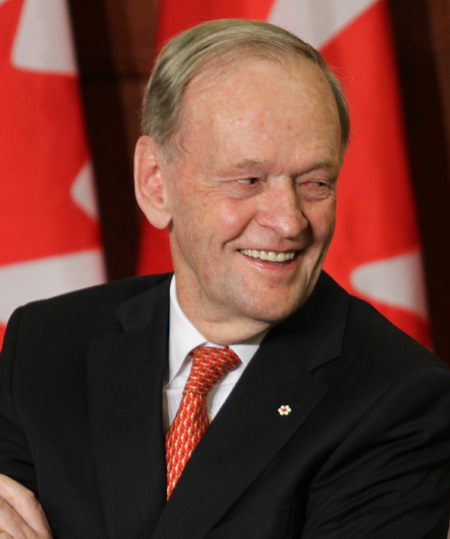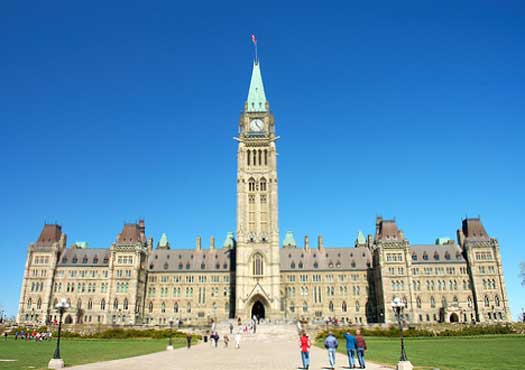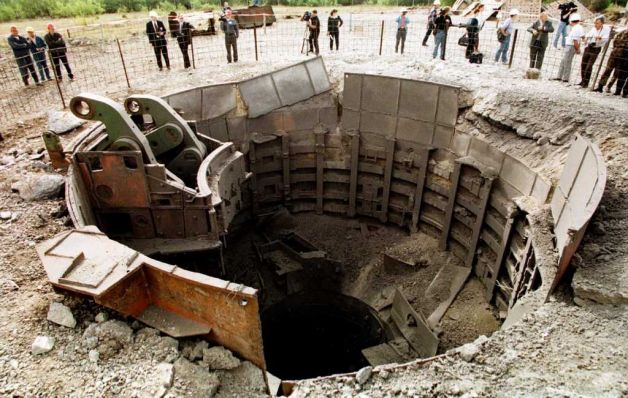Doorstep statement by NATO Secretary General Anders Fogh Rasmussen at the beginning of the NATO Wales Summit
Jenny Yang, NATO Council of Canada’s Junior Research Fellow, attended the Sec-Gen’s doorstep speech in the morning of September 04, 2014, and transcribed it an hour later. Here is the transcription.
Rasmussen Doorstep Speech:
Our NATO Summit in Wales will be one of the most important summits in the history of our lives. A crucial summit at a crucial time. We are faced with a dramatically changed security environment. To the East, Russia is attacking Ukraine. To the SouthEast, we see the rise of a terrorist organization, so-called Islamic State, that has committed horrific atrocities. To the South, we see violence, insecurity, instability. Here at the Summit, we will take important steps to counter these threats and to strengthen the defence of our allies. We will adopt a Readiness Action Plan which aims at improving our ability to act swiftly, to defend our allies, if needed. On defence investment, we will turn the corner and reverse the trend of declining defence budgets. We will discuss what individual Allies and what NATO can do to counter the threat from the terrorist organization, the so-called Islamic State. We will take steps to enhance our cooperation with Ukraine and other partners. And we will open a new chapter in our relationship with Afghanistan after we complete our ISAF mission by the end of this year. This Summit will shape Future NATO, it will demonstrate our resolve, our unity, our solidarity. Our Allies, our Transatlantic Community, represents an island of security, stability, and prosperity. And here at the Summit, we will strengthen our Transatlantic Bond as the bedrock of security, in Europe and North America. Thank you, I am ready to take your questions.
Ukrainian News Agency: “On Putin’s peaceful plan, do you really think it can help to ground the ceasefire. Do you think Poroshenko and Putin can ever find a solution? And can they expect that during this Summit, NATO nations will go further with assistance for Ukraine?
Rasmussen: “First on the so-called Peace Plan, let me stress that we welcome all efforts to find a peaceful solution to the crisis in Ukraine. Having said that, I also have to say that what counts is what is actually happening on the ground. And we are still waiting. Unfortunately, Russian involvement is destabilizing the situation in Eastern Ukraine. So, we continue to implore Russia to pull back its troops from Ukrainian borders; stop the flow of fighters and weapons into Ukraine; stop the support for armed militants in Ukraine; and engage in a constructive political process. That would be a genuine effort to facilitate a peaceful solution to the crisis in Ukraine. As regards to our cooperation with the Ukraine, we will have a meeting with President Poroshenko today, adopt a Joint Declaration and outline concrete steps to enhance our partnership, step up cooperation between NATO and Ukraine.
German Press Agency: “President Obama and Prime Minister Cameron have made it clear that they and possibly other members of the Alliance are ready to increase military pressure on the Islamic State militias. What role do you see for NATO in support for some allies in this endeavour. Or do you think that this should be a coalition of the willing?”
Rasmussen: “First of all, I welcome that individual Allies have taken steps to help Iraq. I welcome the American military action to stop the advance of the terrorist organization Islamic State. I welcome that other Allies have contributed in different ways. I do believe that the international community has a role, has an obligation, to stop the IS from advancing further. As regards NATO, we haven’t received any request for NATO engagement. I’m sure that if the Iraqi government were to put forth a request for NATO assistance, that would be considered seriously by NATO Allies. In that respect, let me remind you that NATO has assisted Iraq in the past. We had a training mission in Iraq in 2011. If the Iraqi government were to request resumption of training activities, I’m sure that NATO Allies would consider the requests seriously.”
Radio Free Europe: “How much more time can you give Afghanistan?”
Rasmussen: No reason to hide that time is of the essence. We need to know very soon whether the necessary security arrangements will be signed by the Afghan government because it is a pre-requisite for our continued presence in Afghanistan beyond 2014: that we have a NATO status accordance agreement in place. And that would also imply a signature on the bilateral level, security agreement between the US and Afghanistan. I’m encouraged by the fact that both presidential candidates have declared they are ready to sign the security agreement soon after taking office. So still, I’m hopeful that the necessary security arrangements will be signed in due time so that we can deploy a NATO training mission Resolute SUPPORT on the first of January 2015. But of course, we are approaching the date when that the decision will have to be made. I encourage the presidential candidates to complete the electoral process as soon as a possible in a way that can be agreed by both candidates.
Newspaper. Yesterday, President Obama said the NATO-Russia Founding Act should be adjusted. What is your idea? Can it be adjusted or should it be scrapped altogether?
Rasmussen: We have made it clear right from the outset that all the measures we have taken, all the measures we’re going to take, to provide effective defence to our Allies, are in full accordance with the NATO-Russia Founding Act. It’s clear to everybody that the Russian Federation has violated the fundamental principles of the NATO-Russia Founding Act. Nevertheless, we are strong supporters of a rules-based security architecture in Europe and so far, that security architecture has been based on the NATO-Russia Founding Act, The NATO-Russia Rome Declaration that established very special, namely, the NATO-Russia council. We have decided, that while we have suspended all practical cooperation with Russia, we will keep this political channel open: keep this channel open for political and diplomatic dialogue with Russia.




